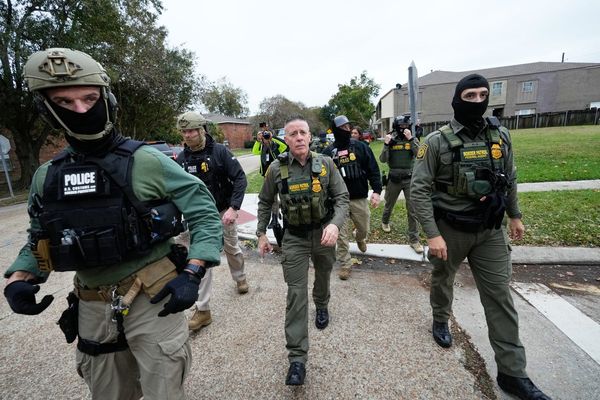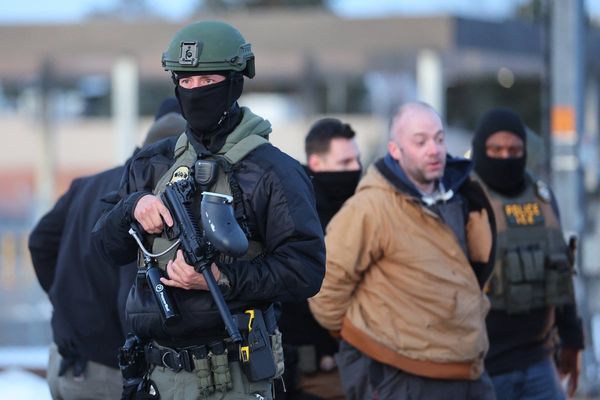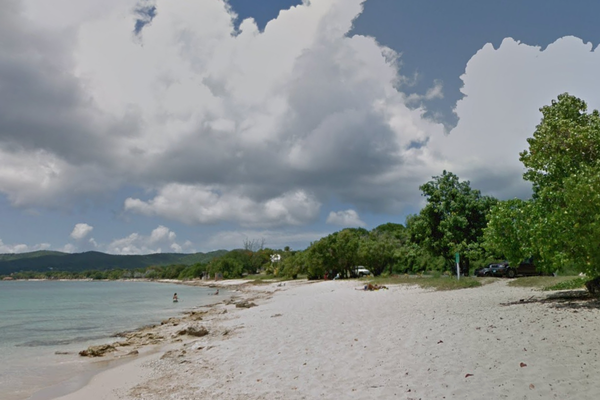With the final scheduled hearing of the January 6 committee looming, the panel investigating the Capitol riot is zeroing in on former US president Donald Trump.
The seventh hearing posed the question: What, or who, could unite right-wing militia groups, internet conspiracists and ordinary citizens in a violent attempt to stop the transfer of power?
In one word, the committee's resounding answer was: "Trump".
Democratic congressman Jamie Raskin flagged the "explosive invitation" that sparked the events of January 6, 2021 was likely a late-night tweet sent by the former president in the wee hours weeks before.
Naming the date, Mr Trump wrote: "Be there, will be wild!"
The committee drew a straight line from his words to the internet chatter that swelled afterward, with fringe groups and Trump supporters later converging in Washington DC.
These were the key moments from hearing seven.
'The craziest meeting of the Trump presidency'
After the US electoral college met on December 14, 2020, confirming Joe Biden as president-elect, Mr Trump scrambled for a way to cling to power by force, according to the committee.
On December 18, a gaggle of his outside advisors — including lawyers Rudy Giuliani and Sidney Powell, and former national security adviser Michael Flynn — paid a surprise visit to the White House.
What followed "quickly became the stuff of legend", Mr Raskin said.
It lasted more than six hours, with Mr Trump's team of outsiders squaring off against White House insiders in a tug-of-war between election conspiracies and legal realities.
Mr Raskin said the two sides "traded personal insults, accusations of disloyalty to the president, and even challenges to physically fight".
Former White House aide Cassidy Hutchinson, who testified in a previous hearing, called her superiors to intervene in Mr Trump's unsupervised meeting with the visitors, who were floating outlandish false theories of election fraud.
White House lawyers, including Pat Cipollone and Eric Herschmann, entered the Oval Office and told the president the theories were bogus.
"Where is the evidence?" Mr Cipollone recalled asking, in a video snippet from his recent closed-door interview.
"It got to the point where the screaming was completely out there," Mr Herschmann said in his own recorded testimony.
Mr Giuliani described their response as "not tough enough".
"Or maybe I put it another way, you're a bunch of pussies," he said.
The meeting ended after midnight, with a relieved Ms Hutchinson calling it "unhinged" in a text message to a colleague.
Not long after, the former president also reached for his phone.
Trump's tweet about a 'big protest'
In the early hours of December 19, 2020, "President Trump turned away from both his outside advisers' most outlandish and unworkable schemes and his White House Counsel's advice to swallow hard and accept the reality of his loss", Mr Raskin said.
"Instead, Donald Trump issued a tweet that would galvanise his followers, unleash a political firestorm and change the course of our history as a country.
"Shortly after the last participants left the unhinged meeting, Trump sent out the tweet with his explosive invitation."
The tweet, sent at 1.42am, read:
"Big protest in D.C. on January 6th. Be there, will be wild!"
The committee argued those two sentences played a pivotal role in what came next.
By focusing on January 6, the day his deputy Mike Pence was scheduled to certify the election results in a joint session of US Congress, Mr Trump effectively gave his supporters a deadline.
In a video compilation, the committee showed how the date immediately circulated on social media, becoming a magnet for increasingly dangerous rhetoric about what one supporter labelled "Trump's last stand".
Another predicted a "Red Wedding", a reference to a bloody massacre in Game of Thrones.
"The time for games is over," said far-right conspiracy theorist Alex Jones.
"The time for action is now. Where were you when history called? Where were you when you and your children's destiny and future was on the line?"
An anonymous Twitter whistleblower testified that the platform had discussed moderating Donald Trump after the Proud Boys rallied around his "stand back and stand by" comment, made during a live presidential debate.
Ultimately, the company chose not to act.
"After this tweet on December 19, again, it became clear not only were these individuals ready and willing, but [the] leader of their cause was asking them to join him in this cause and fighting for this cause in DC on January 6 as well."
Proud Boys, Oath Keepers and QAnon spread the message
The online chatter quickly spread through mainstream and encrypted channels.
Members of the Proud Boys and Oath Keepers, extremist groups already charged with seditious conspiracy by the Department of Justice for their role in the riot, collided with the QAnon movement, followers of a sprawling internet conspiracy theory starring Donald Trump as a Messianic central figure.
"President Trump's tweet drew tens of thousands of Americans to Washington to form the angry crowd that would be transformed … into a violent mob," Mr Raskin said.
The committee established how General Flynn and Roger Stone, both members of Mr Trump's inner circle, had ties to the groups going back years.
Photos from January 6, and earlier rallies near the Capitol, show General Flynn flanked by Trump supporters, including members of the Oath Keepers.
In a video, Stone was shown taking the Proud Boys' oath, declaring himself a "western chauvinist".
An organiser of the Stop the Steal rally, which Mr Trump spoke at on the morning of the insurrection, said she had repeatedly expressed concerns the rally was being co-opted by extremists, remarking, "the President likes the crazies".
The night before delivering his speech, Mr Trump was still writing it, embellishing his aides' words and, ultimately, ad-libbing many of the most inflammatory lines. A single scripted reference to Mike Pence became eight.
"You have to show strength and you have to be strong," he said, unscripted.
Stephen Ayres, a Capitol rioter who testified during the hearing, said he had believed the election was being stolen and that Mr Trump was calling his supporters to act.
"I was already worked up and so were most of the people there," he said.
"I think everybody thought he was going to be coming down."
Mr Ayres, who described himself as a "family man", lost his job at a cabinet company in Ohio after being captured on video inside the Capitol on January 6.
"It changed my life and definitely not for the better," he said.
A former member of the Oath Keepers, Jason Van Tatenhove, also testified, describing the group as a "violent militia", comprised of "white nationalists" and "straight-up racists".
"All we have to look at as the iconic images of that day with the gallows set up for Mike Pence, for the vice-president of the United States," he said.
"I have three daughters, I have a granddaughter and I fear for the world that they will inherit if we do not start holding these people to account."
Trump allegedly tried to call a Jan 6 witness
The committee also revealed that during the course of its hearings, Donald Trump has tried to contact one of the witnesses involved.
"After our last hearing, president Trump tried to call a witness in our investigation, a witness you have not yet seen in these hearings," Republican congresswoman and committee vice-chair Liz Cheney said.
"That person declined to answer or respond to President Trump's call and instead alerted their lawyer to the call. Their lawyer alerted us."
Ms Cheney said the committee had notified the Department of Justice.
The January 6 committee has previously raised concerns about other witnesses being contacted by Trump allies, with some suggesting the former president was aware they were assisting with the investigation.
"Let me say one more time: We will take any effort to influence witness testimony very seriously," Ms Cheney said.
What's next for the Jan 6 committee?
Previous hearings have focused on the pressure campaigns waged by Mr Trump and his allies against former vice-president Mike Pence, state officials and even the Department of Justice in their efforts to overturn the 2020 presidential election.
There's another showdown expected for next week, possibly during prime time.
While it's currently scheduled to be the last hearing, the committee hasn't ruled out adding extra sessions if new evidence emerges.
Ms Cheney flagged the final hearing would focus on Donald Trump's actions on January 6 itself, as the insurrection was unfolding.
The hearing will focus on how Mr Trump's legal team, led by Rudy Giuliani, "knew that they lacked actual evidence of widespread fraud", and consider "how millions of Americans were persuaded to believe what Donald Trump's closest advisers in his administration did not".
"These Americans did not have access to the truth like Donald Trump did. They put their faith and their trust in Donald Trump," Ms Cheney said.
"They wanted to believe in him. they wanted to fight for their country, And he deceived them. For millions of Americans that may be painful to accept, but it is true."







